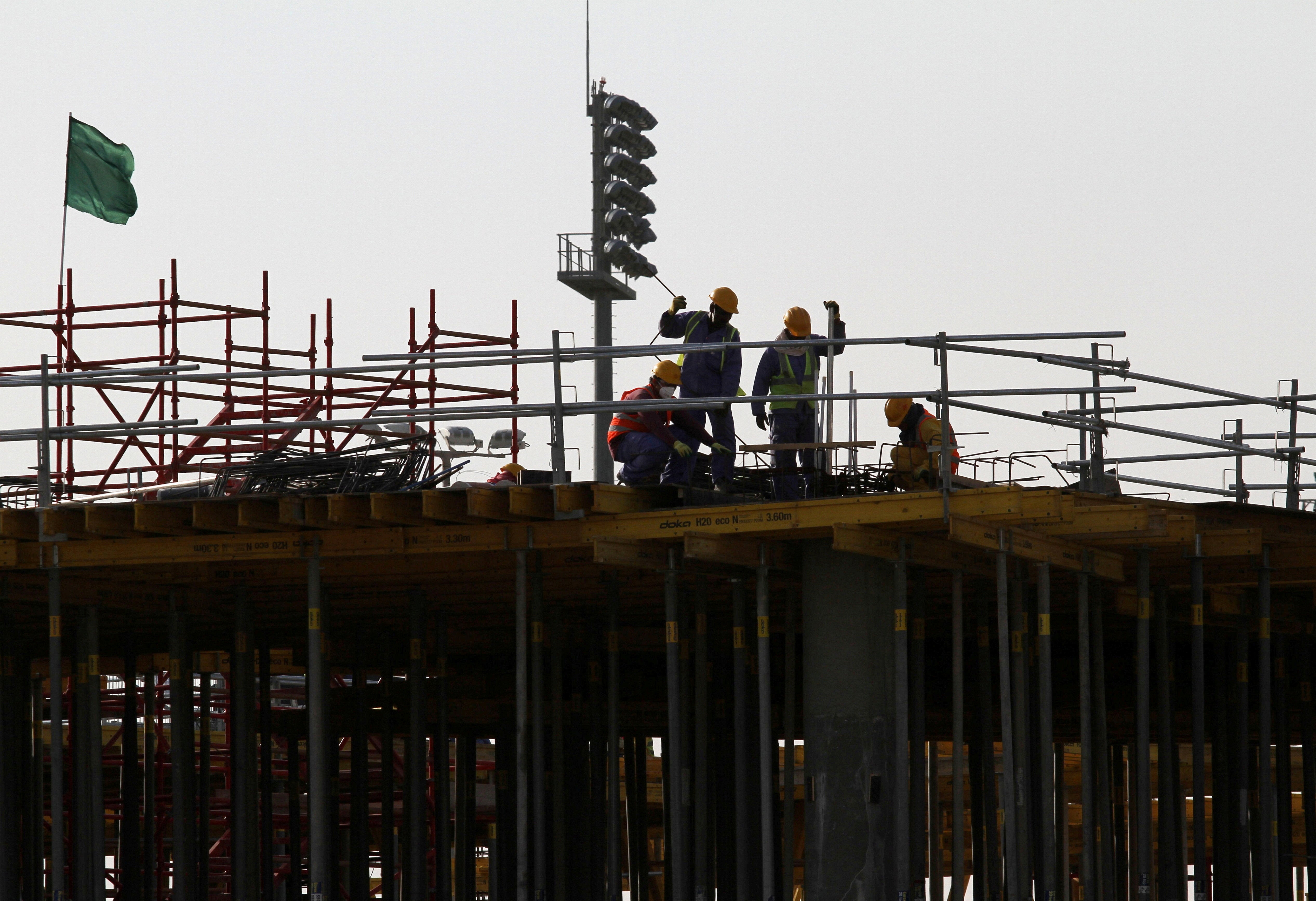Norway votes against boycott of Qatar World Cup over human rights
Some clubs and fans had called for a boycott of the 2022 tournament

Your support helps us to tell the story
From reproductive rights to climate change to Big Tech, The Independent is on the ground when the story is developing. Whether it's investigating the financials of Elon Musk's pro-Trump PAC or producing our latest documentary, 'The A Word', which shines a light on the American women fighting for reproductive rights, we know how important it is to parse out the facts from the messaging.
At such a critical moment in US history, we need reporters on the ground. Your donation allows us to keep sending journalists to speak to both sides of the story.
The Independent is trusted by Americans across the entire political spectrum. And unlike many other quality news outlets, we choose not to lock Americans out of our reporting and analysis with paywalls. We believe quality journalism should be available to everyone, paid for by those who can afford it.
Your support makes all the difference.Norway’s Football Federation has comprehensively rejected a chance to boycott the Qatar World Cup.
An extraordinary general meeting of the NFF on Sunday, which lasted several hours, saw the federation hold off demands from some of Norway’s top clubs and a campaign by grassroot supporters to withdraw from next year’s tournament because of Qatar’s treatment of migrant workers.
In a vote, 368 delegates, made up from teams across the country and members of the NFF board, voted against a boycott, with just 121 in favour.
A simple majority of over 50 per cent was needed for the boycott to take place.
The NFF argued ahead of the meeting that a boycott was misplaced and that the federation should continue “dialogue” with Qatar to try and bring about reforms to the country’s work practices. It had also claimed any boycott could cost it around 200 million krone (£16 million) in compensation.
“For the last five or six years we have worked together with human rights and labour organisations to increase pressure on Qatar and FIFA,” NFF president Terje Svendsen told The Independent.
However despite a groundswell of support for a potential boycott - almost half of Norwegians, 49 percent, are in favour of a boycott, according to a poll published last week - Norway will continue to try and qualify for the tournament.
The vote though appears to have soured relations between the NFF and local fans, with some saying the NFF campaign ahead of the vote was “dirty”.

“As expected, the FA’s position to vote against a boycott of Qatar 2022 won by a significant majority,” said Havard Melnaes, editor of independent football and politics’ website, Josimar. “But the victory came after weeks of playing by the Fifa handbook, that there are no rules in the game of football politics, everything is allowed.”
Qatar has come under fierce international criticism over its treatment of workers who have helped to build stadiums and facilities in preparation for football’s biggest tournament, which will take place in the Middle East for the first time.
The country has undergone a massive transformation for the World Cup, with eight stadiums built or refurbished, and roads, hotels, an airport, a metro train system and even a new city being constructed in time.
Qatar has relied on a huge army of workers, mostly drawn from south Asian countries including India, Nepal and Bangladesh, to help build the infrastructure.
The gas rich state has also used its astonishing wealth to help pay for the overhaul and reckons it has spent some $500 million a week on major infrastructure projects for 2022.
But it is the treatment of its workers which has drawn fierce criticism from overseas, mostly from the West. Human rights groups and trade unions have pointed to a restrictive system of employment which saw workers unable to change jobs or even leave the country without the approval of bosses, staff going regularly unpaid and being forced to work in searing summer temperatures in the desert state.
A recent report by The Guardian claimed that 6,500 migrant workers had died since Qatar was awarded the right to host the World Cup in 2010, and only served to increase anger towards Doha in some quarters, including Norway.
Qatar though says it has introduced labour reforms which have got rid of many of the restrictive practices, including the need for workers to get employers’ permission to leave the country, ensuring workers are paid on time, and the introduction of a minimum wage. It also disputes the 6,500 figure.
A yes vote in Norway would have led to the highest-profile boycott of a global sporting event since several countries refused to take part in the 1980 Moscow Olympics.

The last notable refusal to take part in football’s World Cup came more than 50 years ago, when African nations boycotted the 1966 tournament in England over the number of final places allocated to countries from the continent.
However, Sunday’s vote probably means the end of any sustained attempt by some countries to call for a boycott of Qatar.
Danish supporters have called for a debate in parliament to consider a boycott. And recent World Cup qualifiers has seen teams, including Germany and Norway, wear t-shirts calling for the respect of human rights.
Join our commenting forum
Join thought-provoking conversations, follow other Independent readers and see their replies
Comments